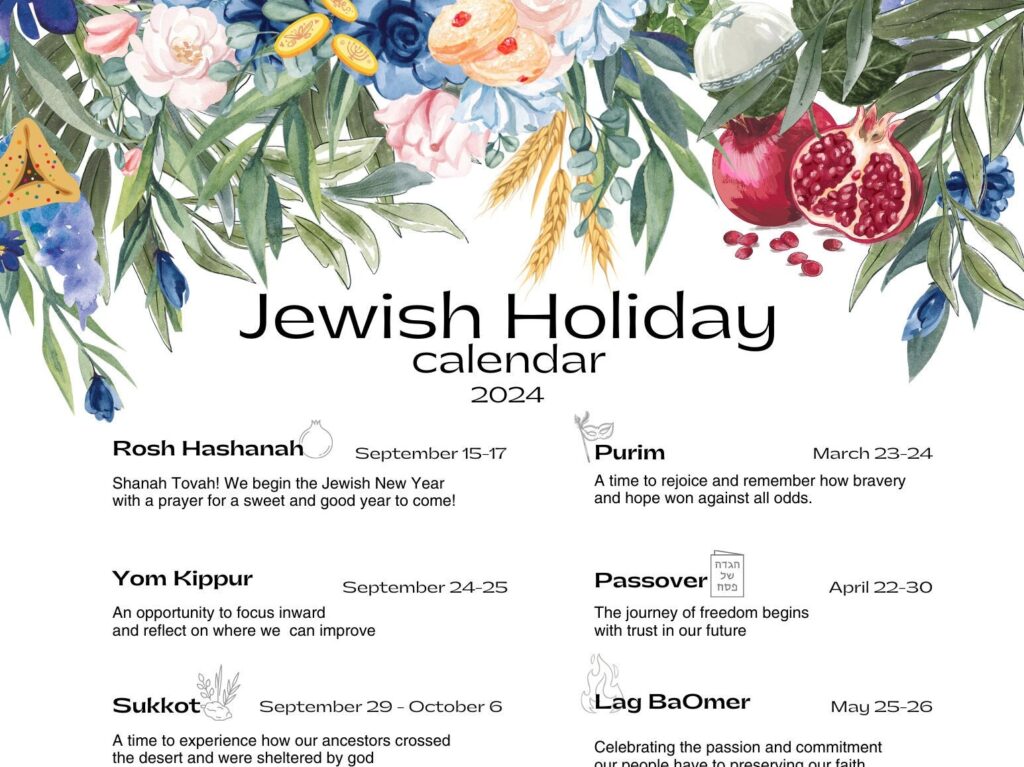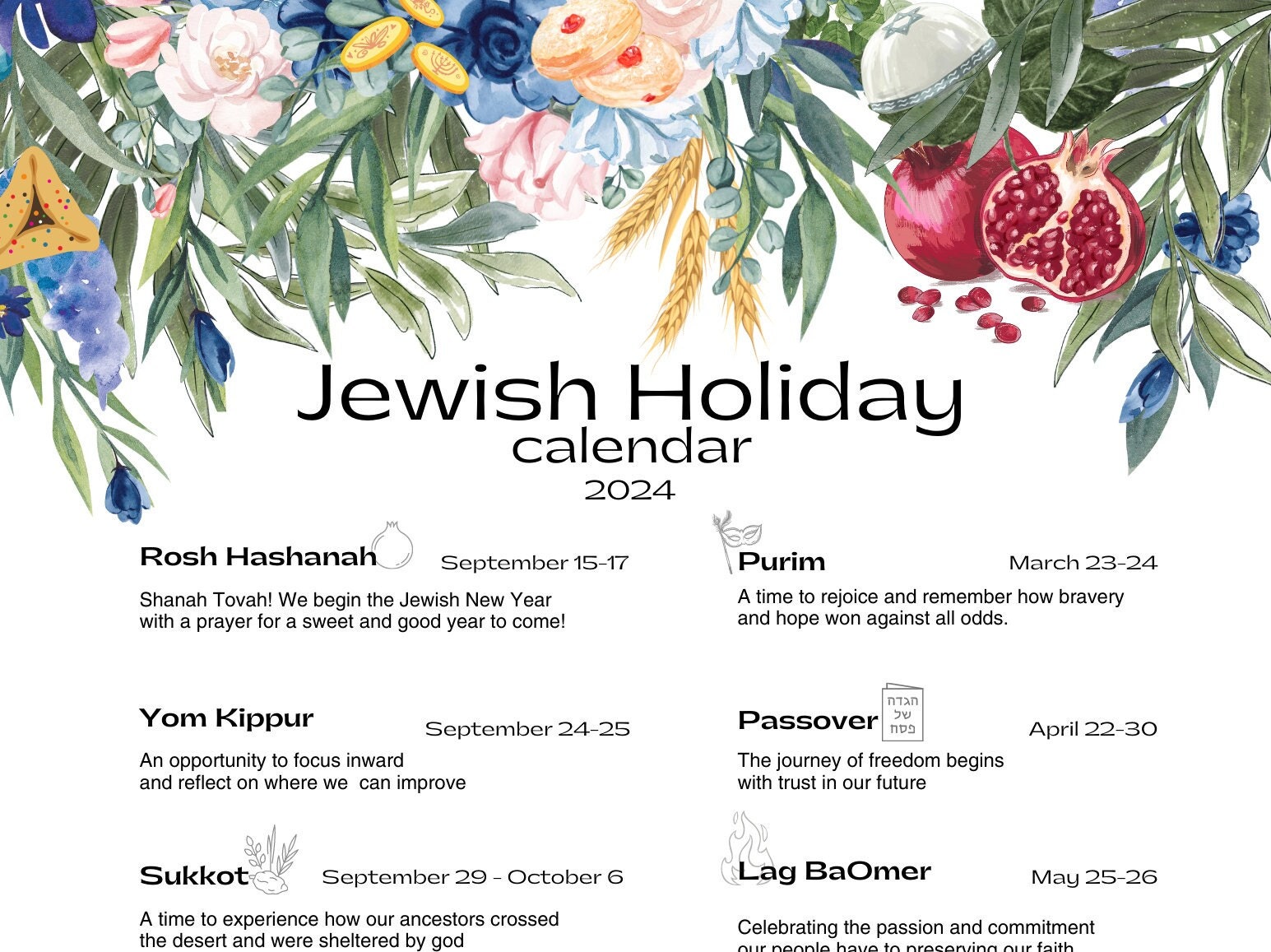
Jewish Holidays 2025: Your Comprehensive Guide to Dates, Traditions, and Significance
Planning your year around the Jewish calendar? Understanding the dates and significance of Jewish holidays in 2025 is essential for personal observance, community involvement, and even professional scheduling. This comprehensive guide provides you with a detailed look at the upcoming Jewish holidays in 2025, offering insights into their historical context, traditions, and modern-day relevance. We aim to be your trusted resource for navigating the Jewish year, offering more than just dates – we delve into the meaning and customs that make each holiday unique.
Understanding the Jewish Calendar and 2025
The Jewish calendar is a lunisolar calendar, meaning it’s based on both the cycles of the moon and the sun. This results in a calendar year that differs in length from the Gregorian calendar, causing Jewish holidays to fall on different dates each year. Understanding this fundamental difference is crucial when planning for Jewish holidays in 2025. Keeping track can be a challenge, but with this guide, you’ll be well-prepared.
The Jewish calendar has twelve months, but an extra month (Adar II) is added in leap years to keep the calendar aligned with the seasons. This intercalation occurs seven times in a 19-year cycle. The timing of these leap years affects the dates of all subsequent holidays. The year 2025 is not a leap year in the Jewish calendar.
Key Jewish Holidays in 2025: A Detailed Overview
Here’s a breakdown of the major Jewish holidays in 2025, including their Gregorian calendar dates, significance, and common customs:
Purim (March 14-15, 2025)
Purim celebrates the deliverance of the Jewish people from Haman’s plot to annihilate them in ancient Persia, as recounted in the Book of Esther. It’s a joyous holiday characterized by:
- Reading of the Megillah (Book of Esther)
- Giving mishloach manot (gifts of food) to friends
- Giving matanot l’evyonim (gifts to the poor)
- A festive meal (seudah)
- Dressing up in costumes
Purim is a time for revelry and celebrating Jewish survival. It is customary to make noise with groggers (noisemakers) whenever Haman’s name is mentioned during the Megillah reading.
Passover (Pesach) (April 13-21, 2025)
Passover commemorates the Exodus of the Israelites from slavery in ancient Egypt. It’s one of the most important Jewish holidays, observed with:
- A Seder meal on the first one or two nights, featuring the Haggadah reading
- Eating matzah (unleavened bread)
- Abstaining from chametz (leavened products)
- The retelling of the Exodus story
Passover is an eight-day holiday (seven days in Israel). The Seder is a highly ritualized meal with symbolic foods and readings, designed to engage all participants in the story of the Exodus. Preparation for Passover involves a thorough cleaning of the home to remove any traces of chametz.
Shavuot (June 3-4, 2025)
Shavuot commemorates the giving of the Torah to Moses at Mount Sinai. It’s also a harvest festival. Observances include:
- Reading of the Ten Commandments
- Studying Torah
- Eating dairy foods
- Decorating synagogues and homes with greenery
Shavuot is a two-day holiday. It is customary to stay up all night learning Torah on the first night of Shavuot (Tikkun Leil Shavuot). Dairy foods are traditionally eaten because the Torah is compared to milk, and because upon receiving the Torah, the Israelites didn’t yet know the laws of slaughtering animals.
Rosh Hashanah (September 23-24, 2025)
Rosh Hashanah marks the Jewish New Year. It’s a time for reflection, repentance, and renewal. Key observances include:
- Blowing the shofar (ram’s horn)
- Eating symbolic foods, such as apples and honey
- Attending synagogue services
- Casting sins into a body of water (Tashlich)
Rosh Hashanah is a two-day holiday. It is a time for introspection and setting intentions for the coming year. The shofar is blown to awaken people to repentance.
Yom Kippur (October 3, 2025)
Yom Kippur, the Day of Atonement, is the holiest day of the year in Judaism. It’s a day of fasting, prayer, and repentance. Observances include:
- Fasting for 25 hours
- Attending synagogue services
- Confessing sins
- Abstaining from work
Yom Kippur is a solemn day dedicated to seeking forgiveness for sins and making amends. It is believed that on Yom Kippur, God seals the fate of each individual for the coming year. The day concludes with a final shofar blast, marking the end of the fast.
Sukkot (October 8-15, 2025)
Sukkot, the Feast of Tabernacles, commemorates the Israelites’ wandering in the desert after the Exodus. It’s a joyous holiday celebrated by:
- Building and dwelling in a sukkah (temporary dwelling)
- Waving the lulav (palm branch) and etrog (citron)
- Inviting guests to the sukkah
Sukkot is an eight-day holiday (seven days in Israel). The sukkah is a reminder of the temporary shelters the Israelites lived in during their 40 years in the desert. The lulav and etrog are symbols of the harvest and are waved in all directions during prayer.
Shemini Atzeret and Simchat Torah (October 16-17, 2025)
Shemini Atzeret is a separate holiday that immediately follows Sukkot. Simchat Torah, the Rejoicing of the Torah, is celebrated on the second day of Shemini Atzeret (in the Diaspora). Observances include:
- Prayers for rain
- Dancing with the Torah scrolls
- Completing the annual cycle of Torah readings and beginning again
Simchat Torah is a festive holiday celebrating the completion of the Torah reading cycle. The Torah scrolls are paraded around the synagogue, and congregants dance and sing with them.
Hanukkah (December 25, 2025 – January 2, 2026)
Hanukkah, the Festival of Lights, commemorates the rededication of the Second Temple in Jerusalem after the Maccabean revolt. It’s celebrated by:
- Lighting the menorah (candelabrum) each night
- Eating fried foods, such as latkes (potato pancakes) and sufganiyot (jelly doughnuts)
- Playing dreidel
- Giving gifts
Hanukkah is an eight-day holiday. The menorah is lit each night to commemorate the miracle of the oil that burned for eight days instead of one. Fried foods are eaten to commemorate the oil.
The Importance of Accurate Dates for Planning
Knowing the correct dates for Jewish holidays in 2025 is crucial for several reasons. It allows individuals to plan their personal observances, such as attending synagogue services, hosting Seder meals, or building a sukkah. Families can use the dates to schedule gatherings and celebrate together. Communities rely on accurate dates to organize events and services. Furthermore, businesses and organizations can use the information to accommodate employees who observe Jewish holidays.
Resources for Staying Updated
While this guide provides a comprehensive overview of Jewish holidays in 2025, it’s always a good idea to consult reliable resources for the most up-to-date information. Consider checking with your local synagogue or Jewish community center. Online Jewish calendar websites and apps are also helpful tools for staying informed. Remember that slight variations in dates may occur depending on your location and specific Jewish tradition.
Beyond the Dates: Enriching Your Understanding
Understanding Jewish holidays goes beyond simply knowing the dates. Each holiday has a rich history, intricate rituals, and profound meaning. Taking the time to learn about these aspects can deepen your appreciation for the holidays and enhance your connection to Jewish tradition. Consider reading books, attending lectures, or participating in community events to expand your knowledge.
The Enduring Significance of Jewish Holidays
Jewish holidays serve as vital links to the past, connecting contemporary Jews to their ancestors and the enduring narrative of the Jewish people. They provide a framework for ethical living, spiritual growth, and communal solidarity. By observing these holidays, individuals and communities reaffirm their commitment to Jewish values and traditions, ensuring their continuity for generations to come. The observance of these holidays provides structure to the year, reminding participants of key historical events and ethical obligations.
Planning Ahead for a Meaningful 2025
As we look ahead to Jewish holidays in 2025, let’s embrace the opportunity to deepen our understanding, strengthen our connections, and celebrate our shared heritage. By planning ahead and engaging with the traditions, we can create a year filled with meaning, joy, and spiritual fulfillment. Consider this guide a starting point for a year of learning and celebration. Share this guide with your friends and family to help them prepare for a meaningful year of Jewish holidays in 2025.

